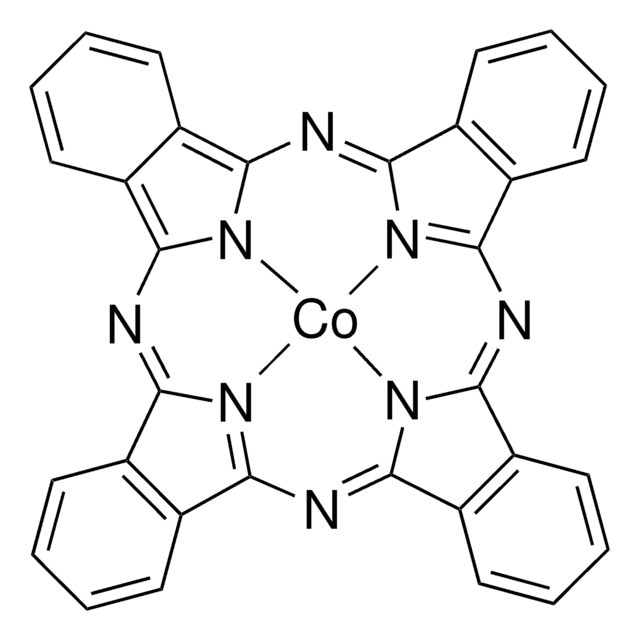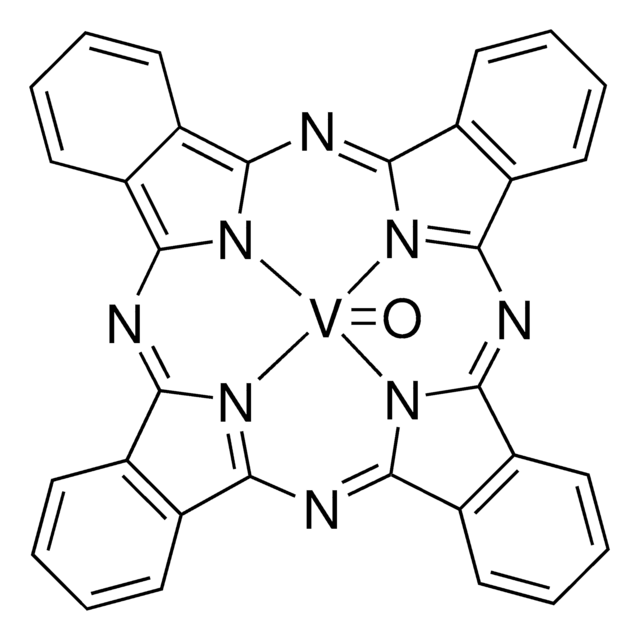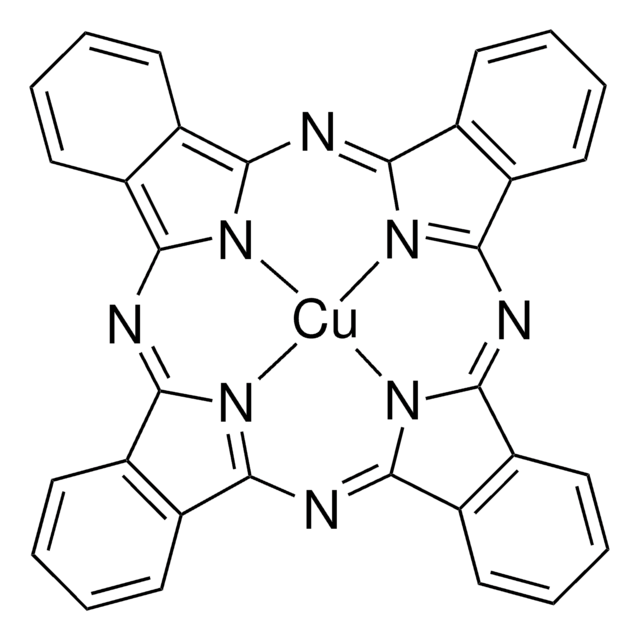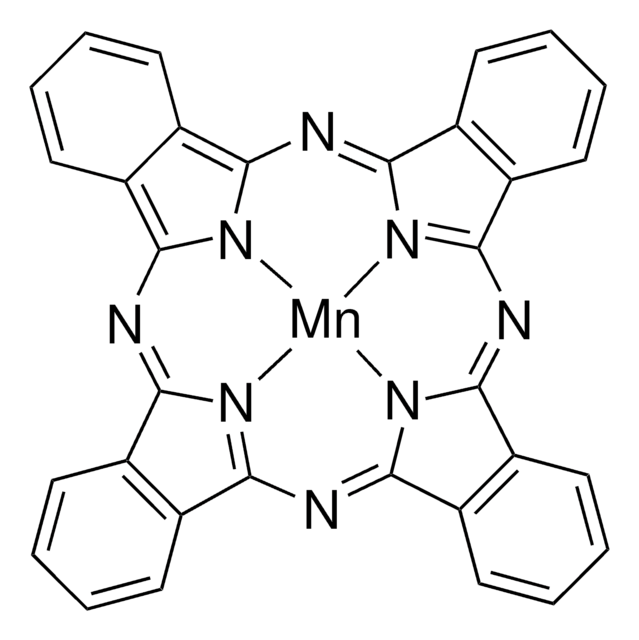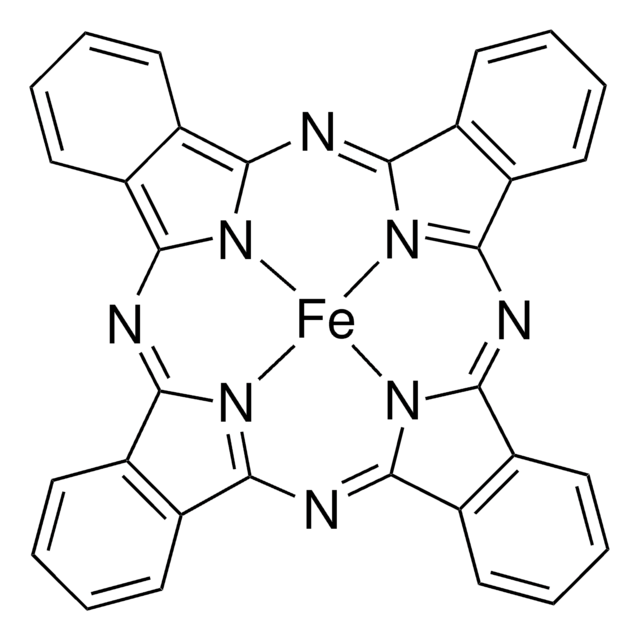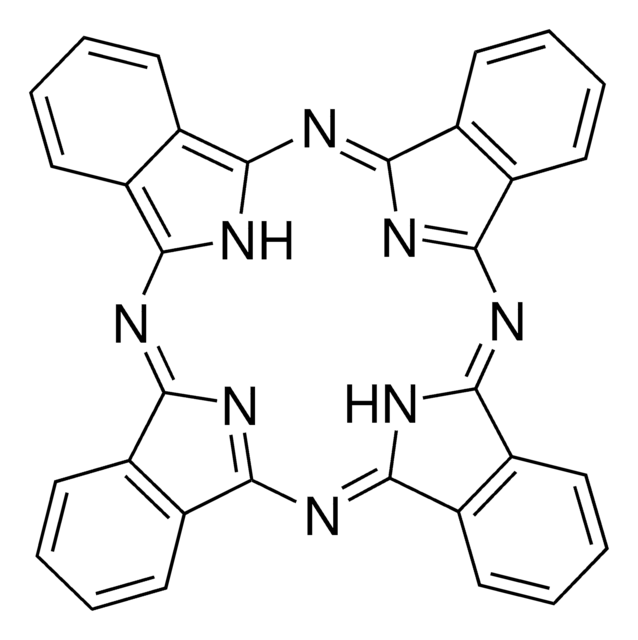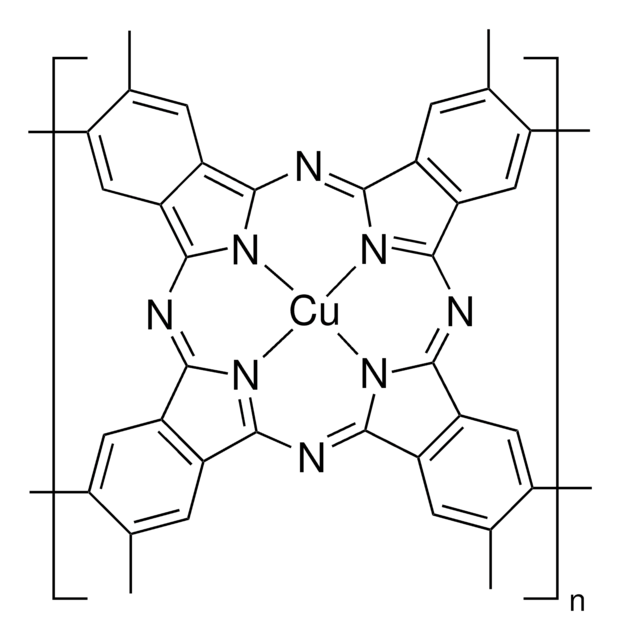404551
Titanyl phthalocyanine
Dye content 95 %
Synonym(s):
Oxo(phthalocyaninato)titanium, Oxytitanium phthalocyanine
About This Item
Recommended Products
form
solid
Quality Level
composition
Dye content, 95%
mp
395.1 °C (dec.) (lit.)
λmax
692 nm
SMILES string
O=[Ti]1n2c3nc4nc(nc5n1c(nc6nc(nc2c7ccccc37)c8ccccc68)c9ccccc59)c%10ccccc4%10
InChI
1S/C32H16N8.O.Ti/c1-2-10-18-17(9-1)25-33-26(18)38-28-21-13-5-6-14-22(21)30(35-28)40-32-24-16-8-7-15-23(24)31(36-32)39-29-20-12-4-3-11-19(20)27(34-29)37-25;;/h1-16H;;/q-2;;+2
InChI key
SJHHDDDGXWOYOE-UHFFFAOYSA-N
Looking for similar products? Visit Product Comparison Guide
Related Categories
Application
Signal Word
Warning
Hazard Statements
Precautionary Statements
Hazard Classifications
Eye Irrit. 2 - Skin Irrit. 2 - STOT SE 3
Target Organs
Respiratory system
Storage Class Code
11 - Combustible Solids
WGK
WGK 3
Flash Point(F)
Not applicable
Flash Point(C)
Not applicable
Personal Protective Equipment
Regulatory Listings
Regulatory Listings are mainly provided for chemical products. Only limited information can be provided here for non-chemical products. No entry means none of the components are listed. It is the user’s obligation to ensure the safe and legal use of the product.
JAN Code
404551-VAR:
404551-BULK:
404551-10G:
404551-1G:
404551-250MG:
Choose from one of the most recent versions:
Already Own This Product?
Find documentation for the products that you have recently purchased in the Document Library.
Articles
While dye sensitization as the basis for color photography has been accepted for a very long time,1 attempts to use this principle for the conversion of solar light to electricity generally had resulted only in very low photocurrents, below 100 nA/cm
Our team of scientists has experience in all areas of research including Life Science, Material Science, Chemical Synthesis, Chromatography, Analytical and many others.
Contact Technical Service